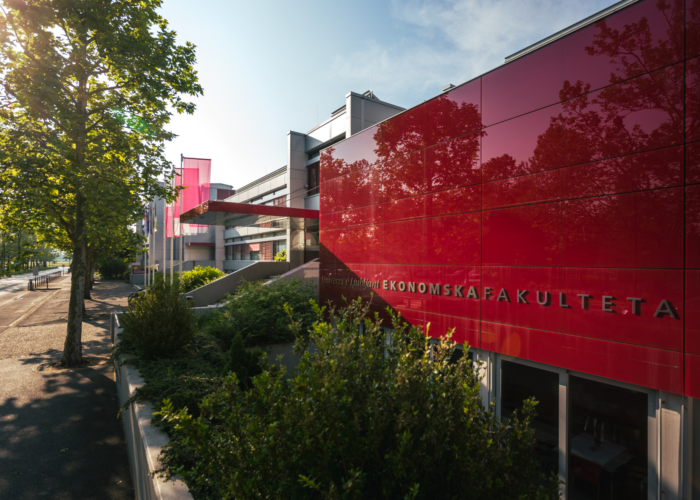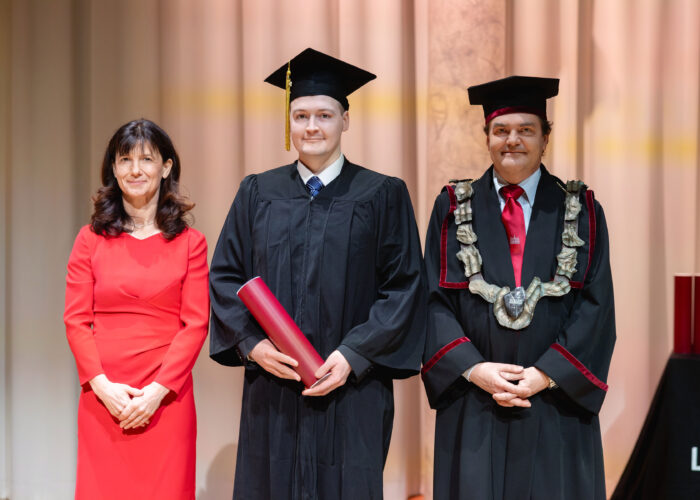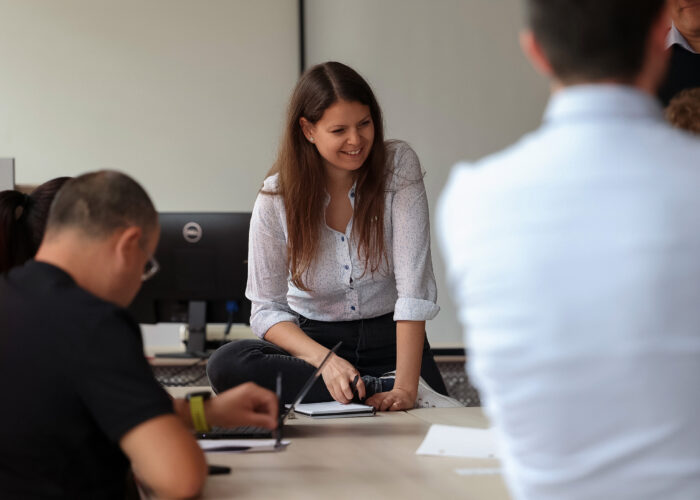Cookies, which are installed to your browser, anonymously collect specific information about your visits to the website. They enable us to guarantee the function of every website application, specific content is tailored especially for you and the visit analysis opts for constant improvements to the website.
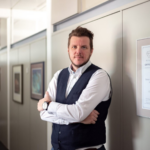
LJUBLJANA MBA Annual awards 2019: Award of Excellence for Best alumni 2018/2019 – Benjamin Brulc
20. March, 2019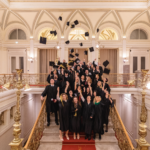
Graduation ceremony of the 7th generation of the LJUBLJANA MBA program
6. December, 2019
LJUBLJANA MBA Annual awards 2019: Award of Excellence for Best alumni 2018/2019 – Benjamin Brulc
20. March, 2019
Graduation ceremony of the 7th generation of the LJUBLJANA MBA program
6. December, 2019LJUBLJANA MBA, Women for Women with Saška Žvan
LJUBLJANA MBA Alumni Saška Žvan shared insights into why she selected the program and the significant impact it has had on her career trajectory.
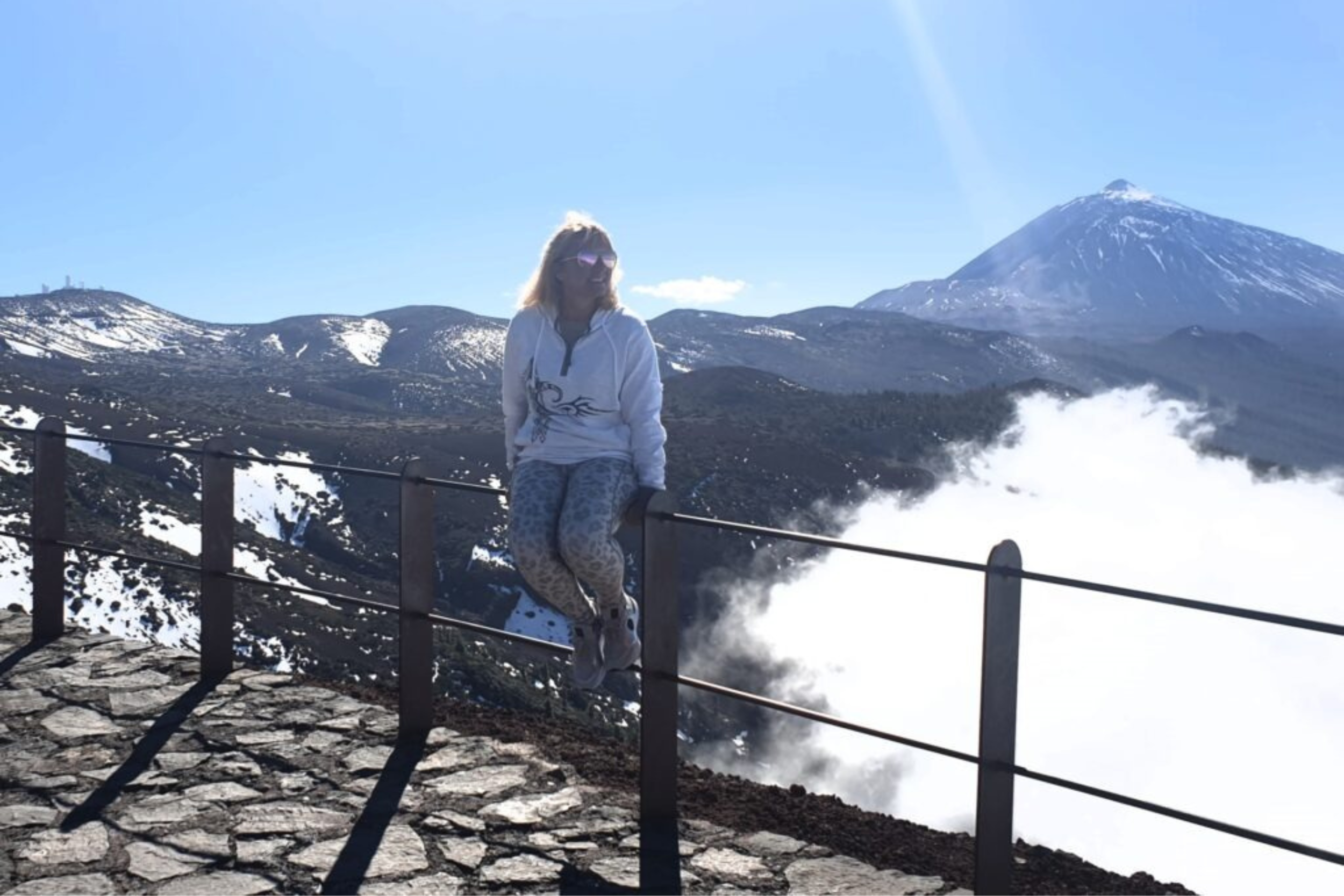
Why did you choose to study again?
For 20 years, I was a typical results-oriented leader, making a career out of getting tasks done, giving direction to various teams, and leading them to achieve company goals. I believed I had it all figured out: managing operations, people, sales, and customer retention strategies to drive business development and increase overall performance. By any standard: I was successful, I met every goal I set for myself, but I began to feel like I was "on top" by myself. I let the feeling of responsibility and fear of failure weigh me down, the fear of not being good enough.
Then, 8 years ago, at age 38, I became a mom to a dynamic little boy and while trying to manage a career and a quality family life, my heart opened up and changed my priorities and employee relationships. And what was new? The desire for authentic leadership, along with the need to engage employees to help them reach their full potential. A determination to "find the fun" and passion and a part of the true self again. And it became so obvious that I needed a change. Following my love of learning and pursuing an MBA sounded like the perfect start to this journey, which I began about three years ago.
At the time, with the simple goal of sharing experiences and validating some ideas with like-minded groups of people, broadening my horizons, and gaining new perspectives from colleagues with different backgrounds.
How would you describe the Ljubljana MBA culture?
I found the MBA culture in Ljubljana to be collaborative, collegial, team-oriented, and at the same time "family-friendly." It is a culture that encourages open-mindedness and out-of-the-box thinking while still allowing individuality. It provides an environment where each individual feels accepted and safe to share thoughts and experiences.
In the daily routine, project teams and the creativity of the participants are often driven by budgets and "limits". Here you can work in a team without constraints, which was truly a revelation in a positive and constructive sense. However, as it is always about people, it is important that whoever enters the program is willing to engage with curiosity and openness, with integrity and authenticity.
I was fortunate that mine, the 8th generation, was just that and I can say with all sincerity that it gave me much more than new knowledge. It gave me the opportunity to share this journey with some amazing and inspiring people, to whom I am especially grateful for everything! And I am sure we will continue to write our story - together. But most importantly, the MBA journey brought me much joy and meaning, gave me new perspectives on life, and allowed me to grow personally and professionally. It gave me wisdom and the ability to put larger situations in perspective and how to communicate that to others.
I don't know how to explain it, but when I used to know something, I listened, but now I also understand the meaning behind it and I listen to people more. Someone once sadly said, "Knowledge is knowing what to say. Wisdom is knowing when and how to say it." And I am more and more aware of the true meaning of it all.
What was the biggest challenge you faced during the programme?
Lack of time of course. For many interesting topics, I would gladly extend our extensive and often stimulating discussions. The other was my personal challenge: to make a difference.
I was raised to believe that "leaders" should not show emotion or ask for help because it makes them weak and incompetent. So my main drives in life have been to try to be perfect in everything I do, to complete tasks with the best results, and to just be "tough". Although I have high emotional and cognitive empathy, I didn't show that part of me to people. Given all of this, I found it exceptionally difficult to let go and delegate, to trust people more, to let them learn from their mistakes, and to not feel stressed myself in the process.
Throughout the MBA journey, I've explored and learned how to overcome some of these "obstacles" to become a more authentic leader and person. Which is not that hard on a rational level, but internalizing it emotionally is much more challenging and tedious.
How have the skills you learned both inside and outside of the classroom translated to your current role?
During the MBA, I began to understand what authentic leadership is really about. That leadership is about caring and trusting people. It's about team involvement and empowerment, putting others before your own expectations, etc. I also realized that we are all "human snowflakes" - each unique, special, with our own strengths. By embracing the positive around me and following my passion, everything became possible again.
And the biggest test of what I learned came with Covid-19, the pandemic that changes all aspects of our lives and pushes us into many uncertainties. But I understood that my first priority as a leader was to keep people safe and allow them to feel safe. I didn't have all the answers, and this time I wasn't afraid to say so. I just followed simple rules: transparent communication, team collaboration, and trust that they will do the "right thing" when faced with a challenge. And together, we're learning how to create sustainable hybrid work models, with conditions that allow employees to feel comfortable in the workplace of the future.
And all of these tasks go far beyond providing new models and supporting tools. First and foremost, we need to look at developing new skills and techniques that will fit into the new corporate culture and work patterns. Remember: it's about people, values and human interactions.
